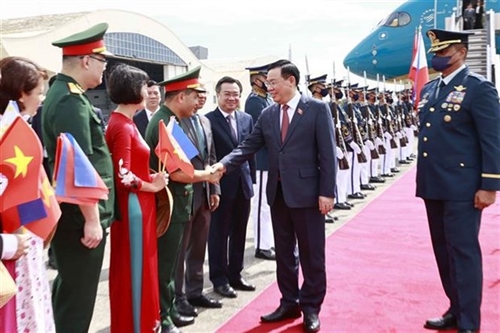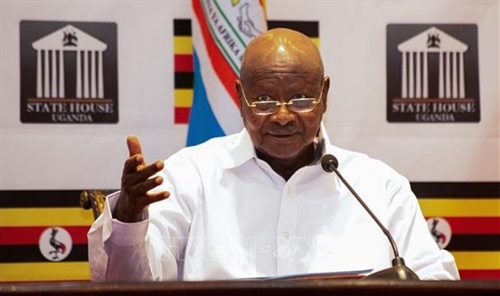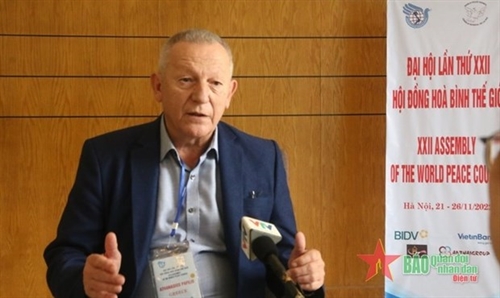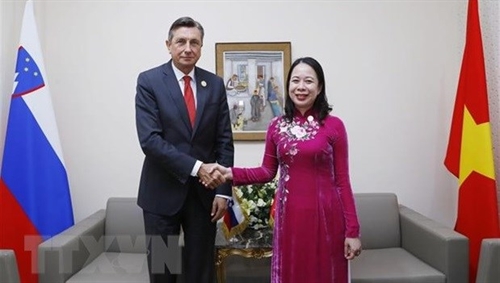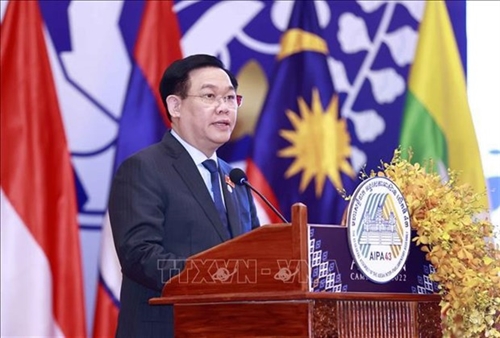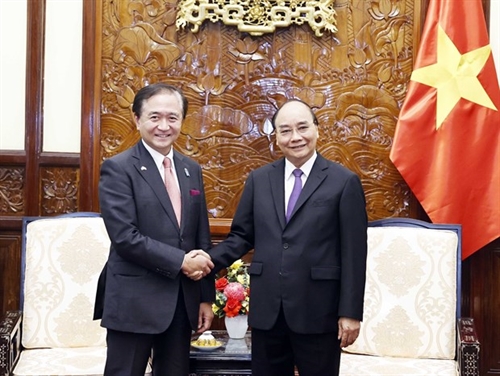While Vietnam's economic recovery has remained strong, heightened uncertainties related to the slowing global economy, rising domestic inflation, and tightening global financial conditions warrant have heightened vigilance and policy agility, said the World Bank (WB).
"Given the economy is not fully recovered and growth in main export markets are expected to slow, continued active fiscal policy to support the economy should be closely aligned with economic outcomes and coordinated with monetary policy," the WB said in its October report, 'Vietnam Macro Monitoring', released on October 20.
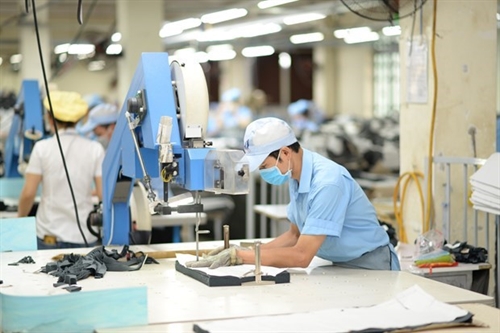 |
| Photo: VNA |
As the country's CPI and Core CPI are reaching 4 percent - the policy rate set by the authorities – monetary authorities should be ready to consider further tightening monetary policy to ensure inflation remains anchored. Furthermore, given the end of forbearance and tightening financial conditions, the financial sector faces heightened risks and prompt the State Bank of Vietnam (SBV) guidance would help dematerialize such risks at the wider sector level basis, potentially affecting the real economy.
The recent turmoil around the Saigon Commercial Bank (SCB) case highlights the need for increased transparency through the timely publication of detailed information about the banking sector performance, enhanced corporate governance, strengthened risk-based supervision, including supervision of business groups and related party lending and early intervention, and an enhanced bank resolution framework, it said.
According to the WB, Vietnam's GDP grew by 13.7 percent year-on-year in the third quarter. The record high growth rate was partly due to the low-base effect, as the economy had shrunk by 6 percent in Q3- 2021 following prolonged lockdowns to contain the COVID-19 pandemic.
The services sector, hit hardest last year, posted the highest growth (18.9 percent year-on-year) and contributed 8.5 percentage points to the GDP growth rate. In particular, accommodation and catering services exceeded their pre-pandemic levels for the first time since Q2-2020, thanks to the strong recovery of domestic demand and the return of international visitors. Industry and construction grew by 12.9 percent year-on-year and contributed 4.9 percentage points.
Over the first three quarters, Vietnam's GDP grew by 8.9 percent over the same period last year.
The report shows that industrial production and retail sales posted another month of high growth rates (13.0 percent and 36.1 percent year-on-year), which could be attributed both to strong economic activities and low-base effects.
Export and import growth moderated in September due to weakening demand from major export markets. The report says that FDI commitment fell in September, affected by the heightened uncertainty about global economic prospects, while FDI disbursement continued to improve.
Despite softening energy prices, CPI inflation accelerated from 2.9 percent in August to 3.9 percent in September, largely due to higher education costs and rents. Core CPI inflation accelerated, from 3.1 percent in August to 3.8 percent in September. The terms of trade deterioration eased in the third quarter compared to the previous three months.
Credit growth accelerated from 16.2 percent in August to 17.2 percent in September as the SBV raised credit growth limits on some commercial banks.
With strong demand for credit, the average overnight interbank interest rate rose from 3.5 percent in August, reaching 5.48 percent in mid-October, the highest since 2013.
The Vietnamese domestic currency, the dong, continued to depreciate against a strengthening US dollar in September (1 percent month-on-month and 3.8 percent year-on-year).
To stabilize the domestic currency, the SBV raised two key policy interest rates and the cap on key short-term rates on deposits denominated in local currency by 100 basis points, the first rate hike since April 2020. The budget balance posted a USD 0.5 billion deficit in September for the first time in 2022, but still registered a USD 10.5 billion surplus over the first nine months of the year.
Given the budget surplus, year-to-date government bond issuance reached only 28.7 percent of an annual plan, compared to 67.9 percent in 2021.-

